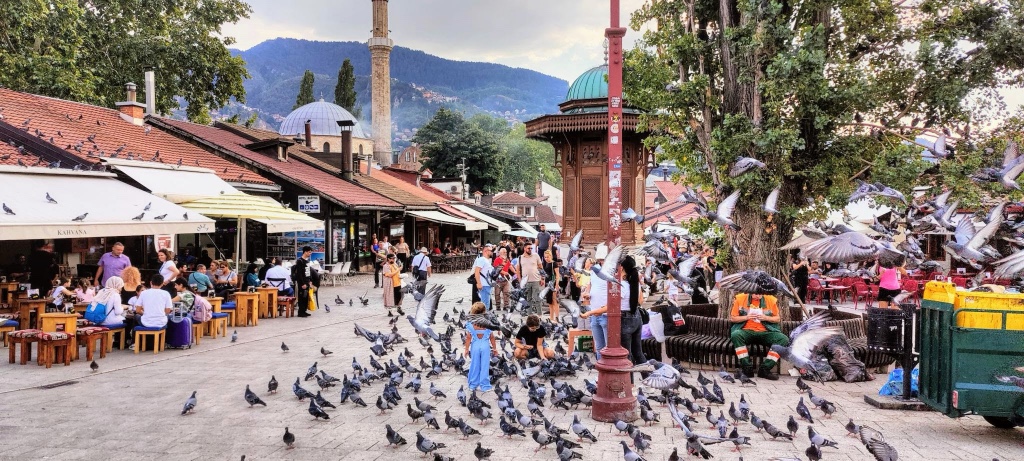
Sarajevo, the capital of Bosnia and Herzegovina, was the next destination in our tour of the Balkans. Located on the Miljacka river and surrounded by mountains, Sarajevo is known for its cultural and religious diversity, nicknamed the “Jerusalem of Europe”. There has been evidence of humans since prehistoric times, though the city itself was formed in the 15th century by the Ottomans. In 1895 it became the first city in Europe to have an electric tram network through the city, only second to San Francisco in the world. The Latin Bridge in Sarajevo was the site of the assassination of Archduke Franz Ferdinand, sparking WWI and ultimately leading to the creation of the Kingdom of Yugoslavia. The city is also known for suffering the longest siege in modern warfare from 1992-1996, a total of 1,425 days. Post war, the reconstruction made Sarajevo the fastest growing city in Bosnia, with 275,000 people calling it home. The city is an eclectic mix of old and new, beautiful old Ottoman buildings intermixed with unique modern architecture.
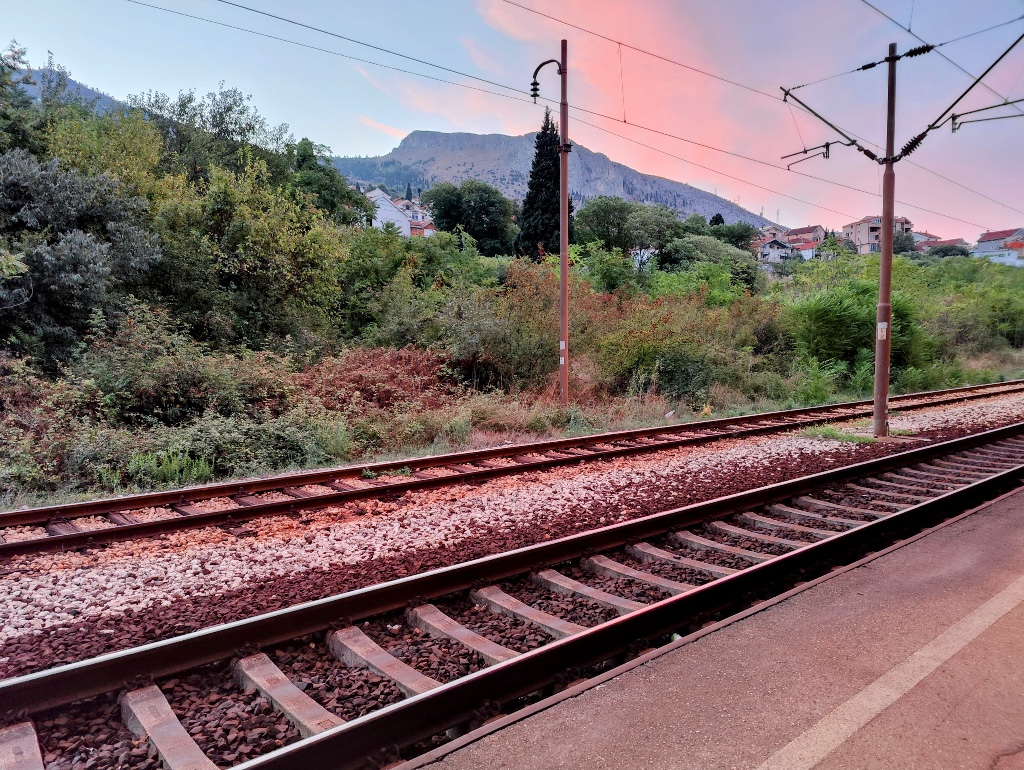
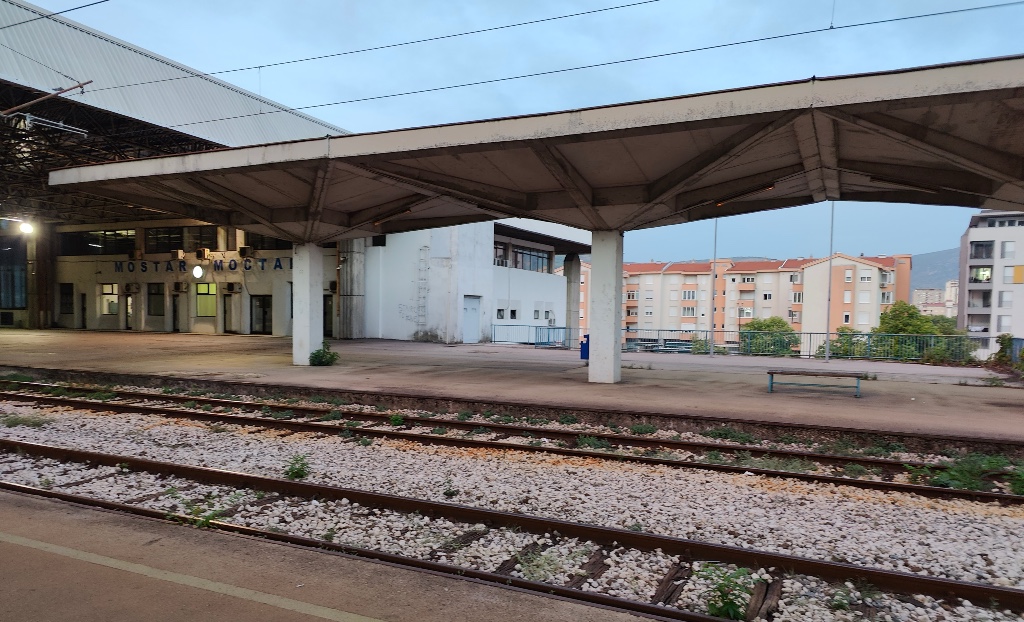
The best way to travel to Sarajevo from Mostar is to take the train. It is a stunning 2.5hr trip through the Bosnian mountains. During the summer months the train schedule is shortened to two departures, a 6:30am or 8pm train. We didn’t care to travel after sunset, or arrive too late to meet our new host, so we opted to get up super early for the morning train. Our gracious host in Mostar drove us to the station at 5:45am so we could be there in plenty of time. There are not a lot in the way of taxis in the mountains where we were staying and since we did not have a local number it makes it near impossible to book one. There are no taxi apps in Mostar, so keep that in mind when you are having to get to the airport/train station. Staying in Old Town would be easier, that is where the taxi stations are. The train station was silent upon arrival, a few dozen people trickled in to catch the morning train. Seeing the sun come up over the mountains was lovely.

Upon arrival in Sarajevo our new host met us at the train station, even waited for our delayed train to arrive. The kindness of the Bosnian people is immeasurable, everywhere we go people are friendly and beyond helpful. When arriving in the neighborhood our host gave us a tour of where we can get our groceries and local produce, eat and grab a fresh burek. The neighborhood has a ton of cafes and restaurants; the two Bosnian pastimes, drinking coffee and eating great food with family and friends. We are staying in an old communist bloc building on the 6th floor. Although it looks brutalist on the outside, the apartment was bright, spacious and comfortable.
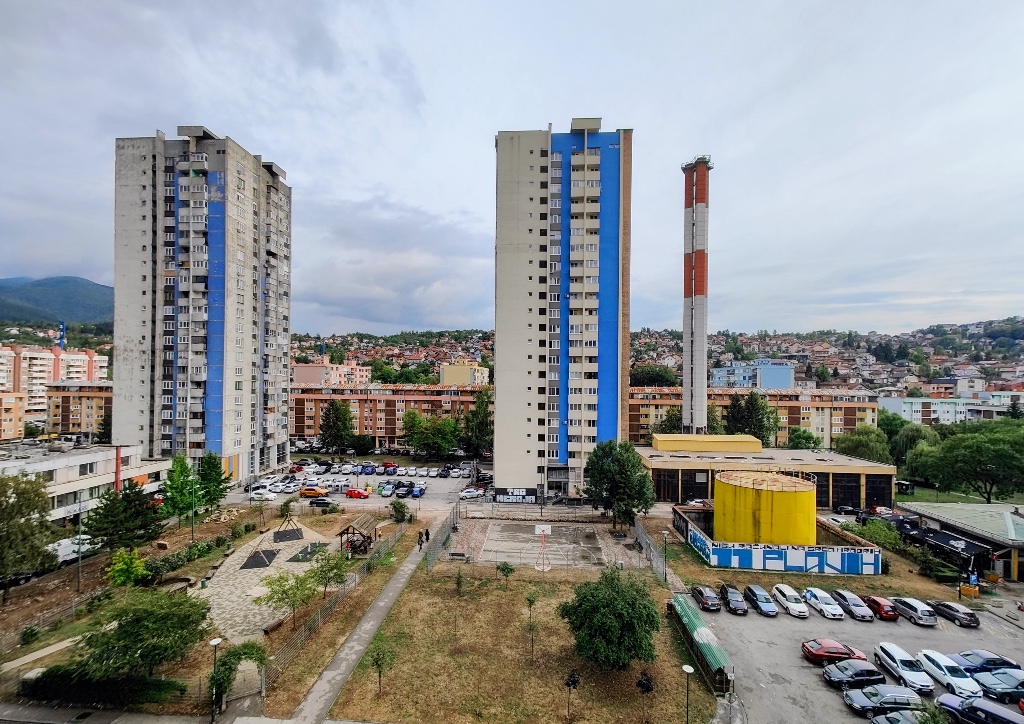
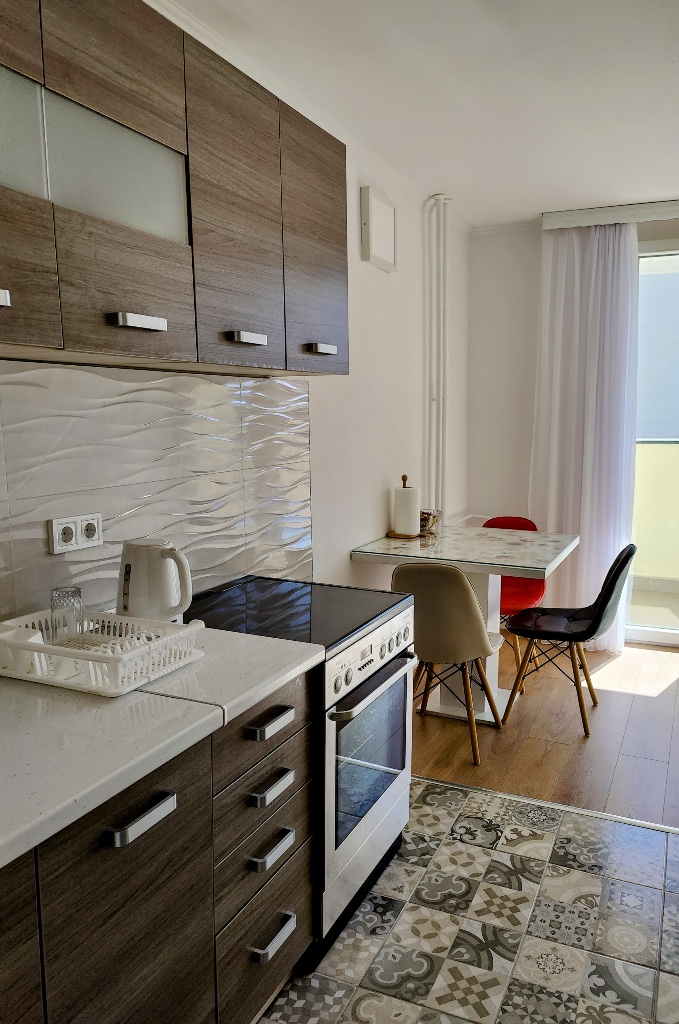
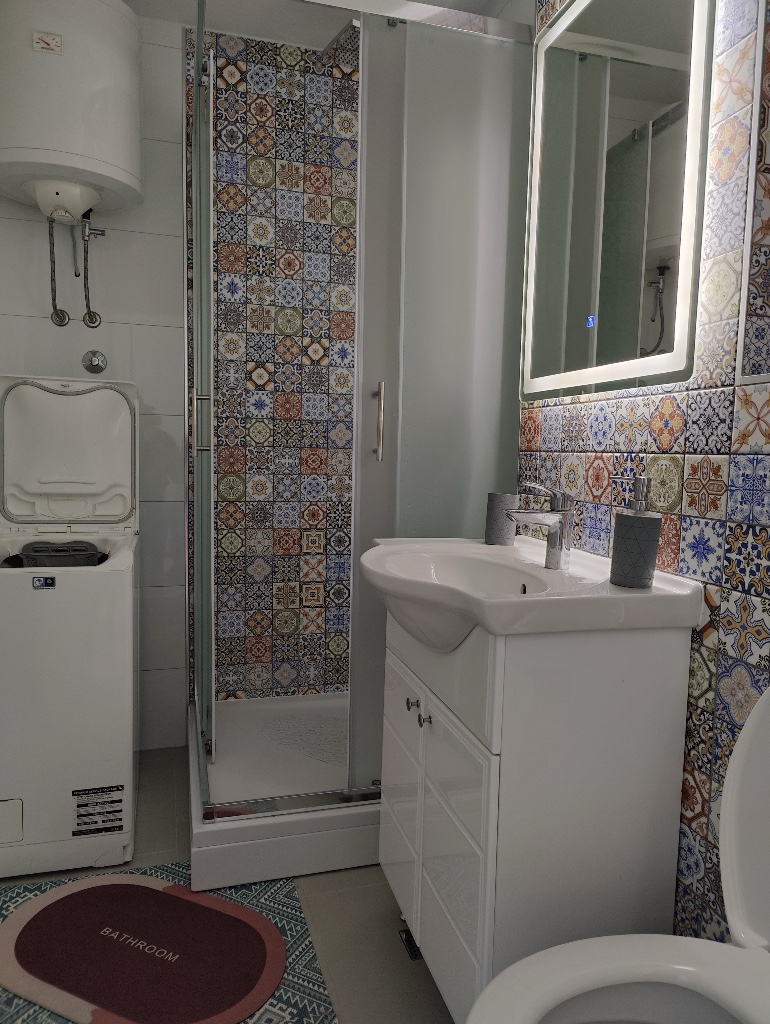
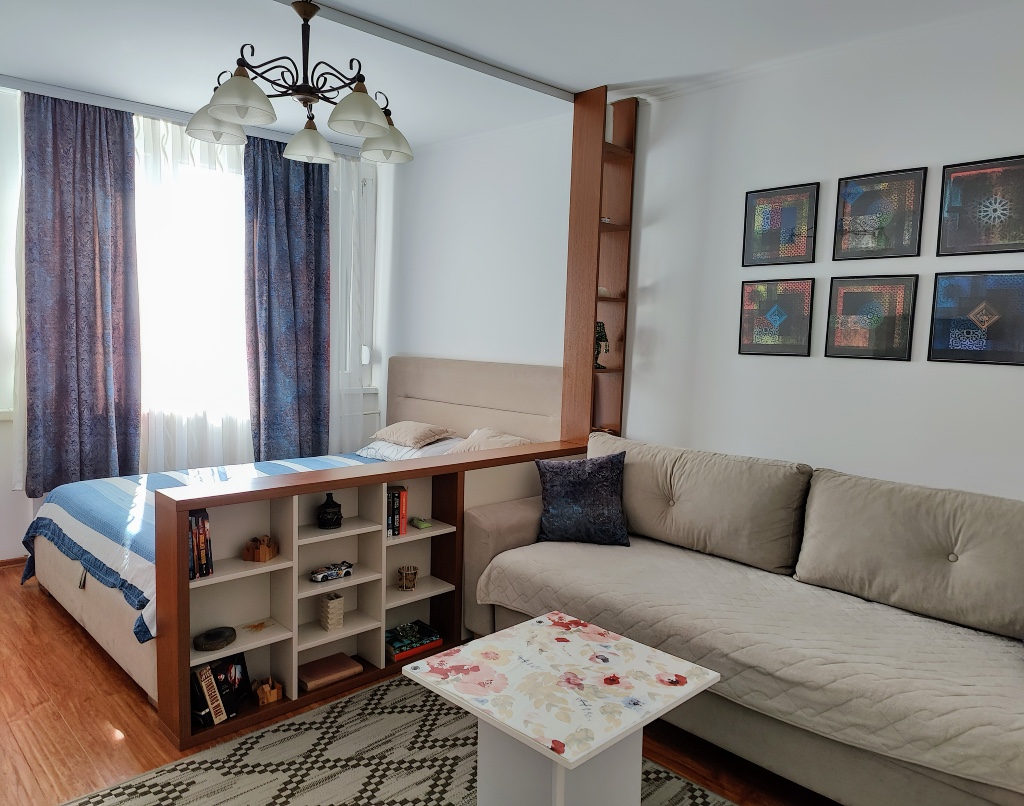
Bosnian food is amazing, we had some really special meals here, most notably Muckalica, a stew made with leftover barbecue meat, roasted peppers, onions, garlic and tomatoes. Originally from Leskovac, Serbia, it is named from the word “muckati”, meaning “to shake”. It is an important element of the dish, it should always be shaken, not stirred. A dish even James Bond can get behind. The national dish is cevapi, small rolls of ground lamb and beef served with pita bread. Dolmas are incredibly popular and come in a variety of forms, a combination of beef and rice are stuffed into peppers, tomatoes, onions or greens. Klepe are dumplings similar to ravioli are served with garlic and sour cream.
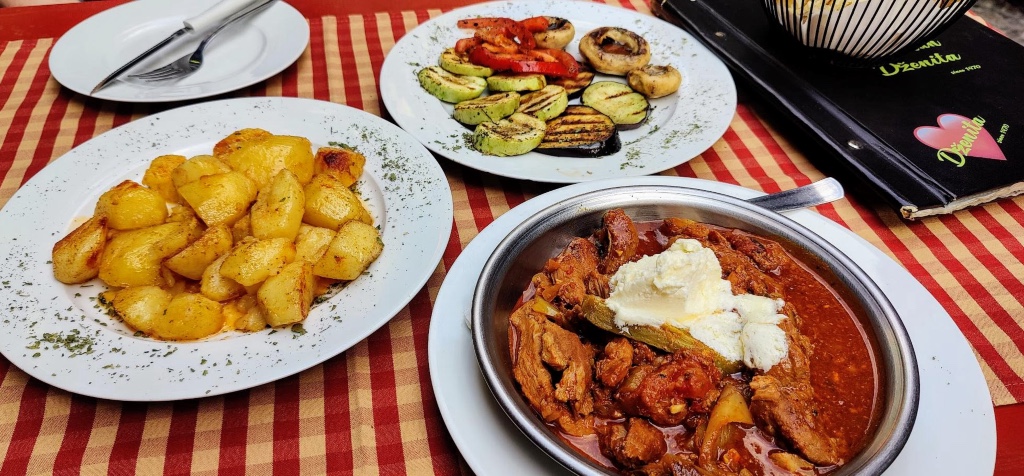
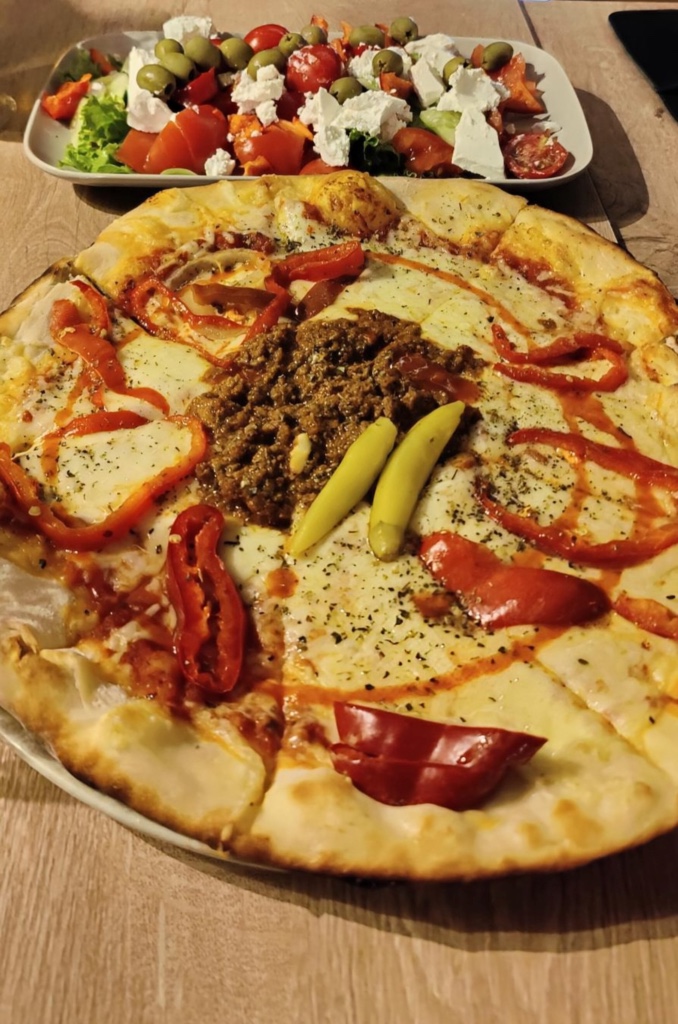
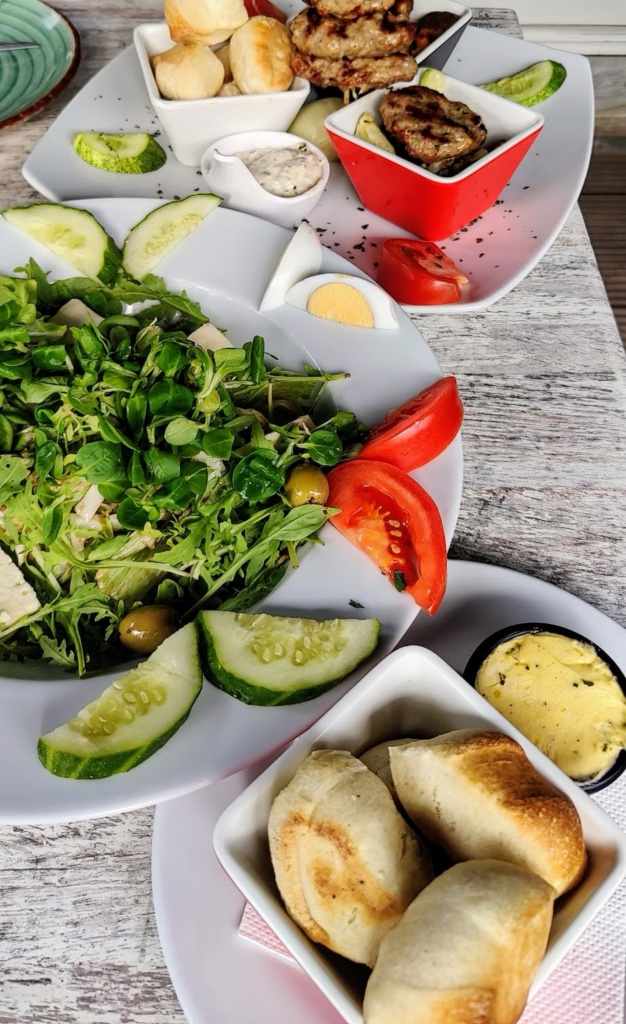
We were spoiled in our neighborhood for food and drinks. Pizzeria Maslina was 50 meters from our place. It was a popular hangout for the area, always seemingly peak time no matter when we went. Luckily the restaurant is huge, if we couldn’t get a seat outside they usually had one in their upstairs dining room. Pizza and salads were amazing and the service great, it was nice to have something delicious next door. Our other favorite local spot was Casa El Gitano, a traditional Bosnian restaurant that specializes in Ustipci, a fried dough served with herbal butter paired with baby pljeskavica, roasted potatoes and grilled vegetables. It was also amazing to have a salad with micro greens, it had been an incredibly long time since we had a salad with greens other than arugula or green leaf lettuce. El Gitano was around the corner from The Pub, our favorite place to spend Saturday afternoon. They have a happy hour from 4-6 where you can get two pints of draft beer for 5 BAM ($2.50) while hanging out on their enormous patio under a canopy of old trees.
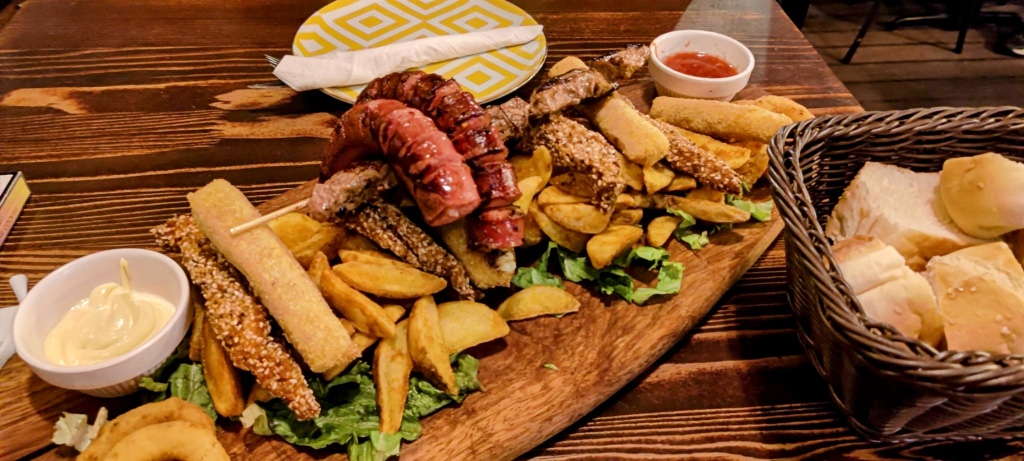
Beer and snack pairings are super popular here; Vucko is a trendy Gastro Pub also packed at all times of the day. The evening we went we were lucky to grab their last table. They have a huge bottle selection of craft beers, and a few local offerings on tap. The vibe is great, the snack platter was insane but it had been months since we had a bunch of fried food. Sesame chicken tenders, onion rings, mozzarella sticks, local sausage, grilled veal and potato wedges were on our plate. Our server brought us bread on the side which we could not eat. It was a ridiculous amount of food, even though it was recommended for 2! Bosnians know how to have a good time.
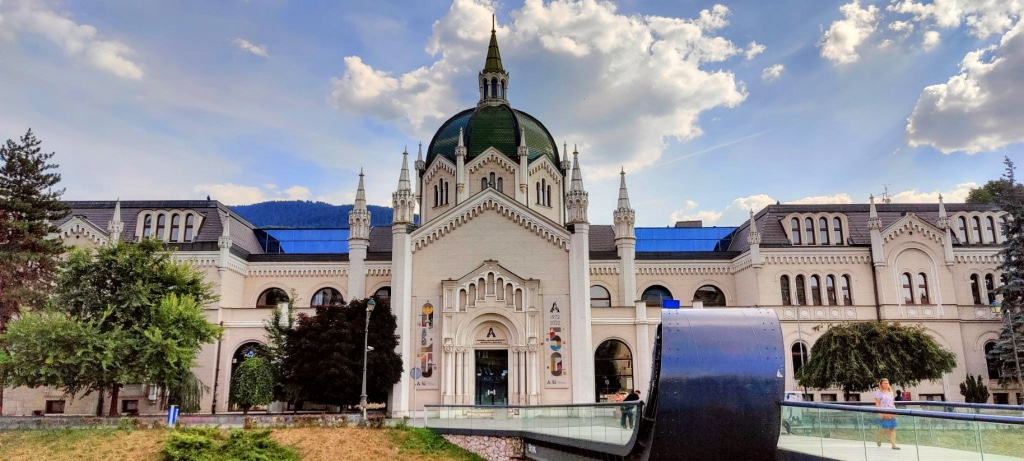
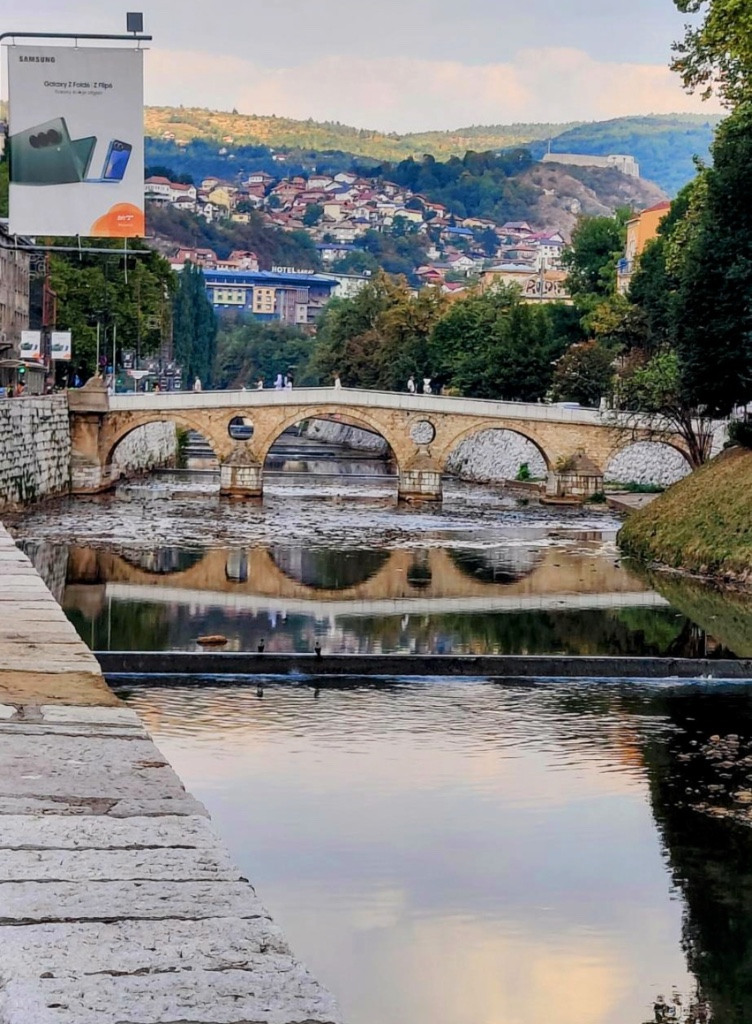
The Latin bridge is the infamous location of the assassination of Archduke Franz Ferdinand and his wife, which spurned the beginning of WWI. The bride gets its name from connecting the right bank of the Miljacka River to the Catholic or Latin Quarter. It is the oldest of the preserved bridges, dating to mid 14th century. It is constructed of four arches of stone and gypsum, along with the two “eyes” that are so iconically Sarajevo that they are included in the city’s seal.
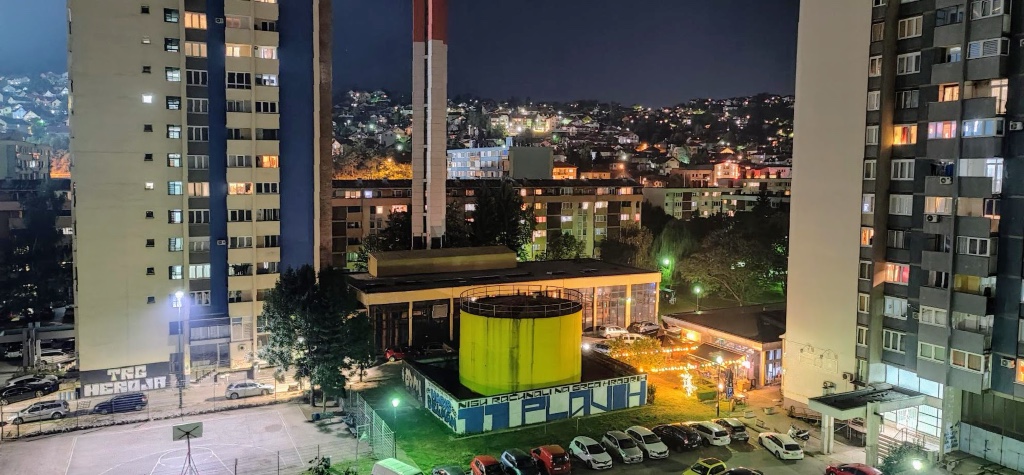
What I will miss most about Sarajevo is our neighborhood, surrounded by cafes, burektore, and our favorite haunt, Union Jack. Union Jack was a billiard club with dart boards and pool tables too. I wished I had taken a pic one of our visits, but I am spending more and more time away from my phone these days. Union Jack hides behind the building to the left in the photo above on the bottom floor of the apartment building. The Jack is a really cool local place where the young people come together to play a friendly game with their friends and enjoy cheap beer and coffee. One thing I loved is people complimenting each other on an awesome shot, be it billiards or darts. Hearing people encouraging each other is heart warming. Bosnians, like most Balkan people love their friends and families so much. They are incredibly hard working people, but they also know how to relax and have a good time. There is an easy going feel wherever you are. We always felt welcome here, the hospitality of the Bosnians are near unmatched in our travels so far. I felt so lucky to have visited such a diverse and historical city, it really felt like home to be in Sarajevo. I hope to come back to this amazing place someday.